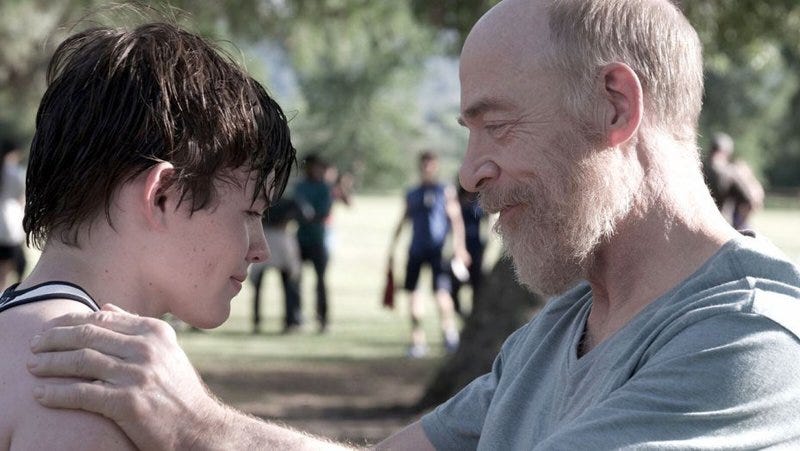Heartland: The Bachelors

For tickets and showtimes, please click here.
A central conceit of the movies is that love is the answer to all your problems. But anyone who’s trotted around the block a time or two knows that love is the source of at least as much hurt as it is the cure. In reaching out to others, we often find large portions of pain mixed in with the joy.
“The Bachelors,” a tender-hearted new drama, knows this in its bones.
It’s the story of a father and teen son (J.K. Simmons and Josh Wiggins) who are torn up over the loss of their wife and mother, respectively, and pick up and move to a new town. There each of them wanders into romantic encounters with a woman. In any kind of a conventional movie narrative, those relationships would help them put back together the pieces of their shattered lives and set aside their grief.
In other words, new love replaces lost love.
Instead, in writer/director Kurt Voelker’s telling, the romances only add to their suffering, at least for a time. Each man, old and young, finds themselves ill-equipped to be in a relationship because of their inability to let go. In turn, their female counterparts don’t fully recognize what he is going through and unwittingly do things to add to their hurt. They’re also fully-fleshed human beings on their own, played by Julie Delpy and Odeya Rush, and bring their own foibles and flaws to the pairing.
To steal a line from the great Roger Ebert, I wanted to hug this movie. The performances are uniformly excellent, especially Simmons and Rush. Each seems to practically bleed pain and loss out their pores.
It’s a challenging performance for Simmons as Bill Palet, because he’s playing a shattered man who is numb and passive. He spends significant portions of the movie in utter stillness and silence. Somehow, Simmons projects the character’s thoughts and emotions in his expressions and few words, giving us a complete portrait without having to use all of our senses. He shows, he doesn’t tell.
Wes (Wiggins) is about 16, a good kid with a few less obvious issues. A year after the death of his mother (Kimberly Crandall), he has put back together enough of the pieces to function more or less normally. And he resents that fact that his dad, the parent who should be consoling him, hasn’t done the same.
They move from San Francisco to Los Angeles at the invitation of Bill’s friend Paul (Kevin Dunn), the headmaster of an elite private preparatory school, to teach calculus there. As a bonus, Wes gets to enroll in the school, the sort of all-male institution where everyone wears a coat and tie, and privileged snots lord it over the less fortunate. Antagonism with the head jock feels inevitable.
Bill drives a 1971 Ford Mustang convertible with the front passenger seat missing -- a visual cue of the absent portion of their little family. Upon arriving at their new home he bequeaths the car to Wes, preferring to ride a bicycle instead. It seems like a ridiculously generous move, but it’s more indicative of Bill’s further abdication of his parental duties. Wes has literally become the man of the house.
Rush plays Lacy, a tough loner girl who takes some classes at the boys’, and has quickly gained a reputation for carousing. In French class, the teacher, Carine (Delpy), assigns the gifted Wes to tutor Lacy, who’s struggling. The other boys quickly begin teasing him about his wooing the local harlot, but their initial encounters are very stiff and unfriendly, gradually grow more revealing.
Carine’s a sharp-eyed egg. She works to keep the worst of the boys’ impulses in check, and takes struggling students like Lacy under her wing with a sort of maternal officiousness. Meanwhile, she finds herself intrigued by the stoic Bill. Ostensibly playing up an intrigue between them to fend off the advances of a boorish phys ed teacher, she finds herself falling for her own ruse.
Things go from there. I appreciated Voelker’s ambition and subtlety with his characters, eschewing easy fixes and obvious plot paths. Yes, two sets of romances spring forth, but that’s the beginning, not the end, of the emotional journey.



